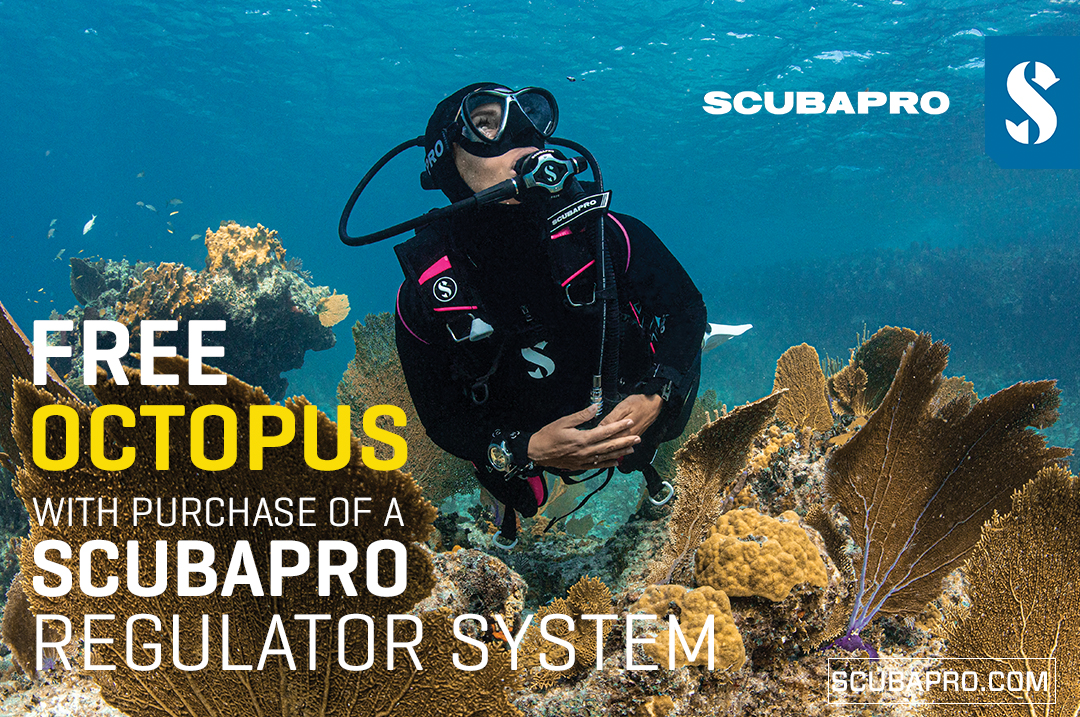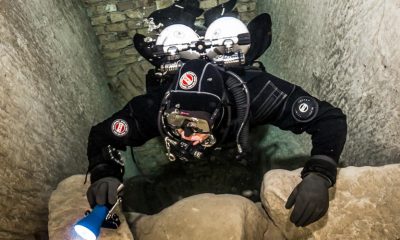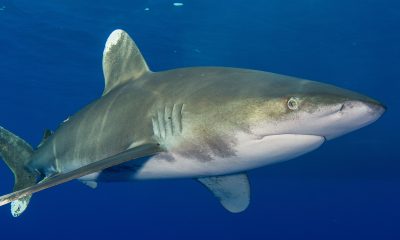News
Photo of seabirds using plastics to build their nests highly commended in UPY

A photo of gannets using discarded nets and ropes to build their nests highlights the increasing problem of plastic pollution on marine life. The image was ‘highly commended’ in the 2020 Underwater Photographer of the Year competition on Saturday 22 February 2020.
Simon J Pierce, Marine Megafauna Foundation and www.naturetripper.com
Dr. Simon J Pierce, a principal scientist at the Marine Megafauna Foundation and wildlife photographer for Nature Tripper, captured the image at Runde Island, off the southern coast of Norway. The island is a seasonal home to over half a million seabirds, including the northern gannets he was there to photograph.
“We were bouncing around in a small boat, so it was tough to compose a photo. I could see some colour among the gannets’ nests on the cliff, and I was pretty sure there weren’t supposed to be bright colours in seabird nests, so I bumped my shutter speed up and hoped for the best. When I downloaded the pictures to my computer later, I just gasped. The nests were overflowing with fishing debris,” says Pierce.
Gannets normally build their nests from seaweed and grass floating on the ocean’s surface near the island. Increasingly, the seabirds are using discarded netting, ropes, and packaging straps from fisheries instead. This fishing waste seems to be becoming more common than the natural materials they instinctively gather. A recent survey at Runde Island found that 97% of nests contained man-made debris. Newborn chicks, and even adult gannets, are routinely entangled and killed in these tough and non-biodegradable materials.
Peter Rowlands, Chair of the Judging Committee for the Underwater Photographer of the Year competition in 2020, added, “We have given them no choice. Their natural materials of seaweed and grass have been smothered by indestructible ghost traps which fishermen have lost or intentionally discarded. We, and the fishermen especially, should hang our heads in shame and then do everything in our power to reverse this.” Pierce’s image of the gannets was highly commended in the “Marine Conservation” category of the competition.
Scientists are increasingly revealing the insidious threat posed by plastic pollution. The Marine Megafauna Foundation is a non-profit organisation researching manta rays, whale sharks and other large marine animals threatened with extinction. Elitza Germanov, also a researcher from the Marine Megafauna Foundation and PhD candidate at Murdoch University, has been investigating the presence of plastics in feeding areas used manta rays and whale sharks in Indonesia. “Manta rays and whale sharks are large filter-feeding fish that can ingest microplastics directly from polluted water or indirectly through the contaminated plankton they feed on,” says Germanov. With time, plastics break down into smaller pieces called microplastics that these large marine filter feeders might accidentally scoop up because they float among their prey.
Germanov’s research found that reef manta rays foraging in the waters off Bali and in Komodo National Park may swallow up to 63 pieces of plastic every hour. Whale sharks that seasonally visit the island of Java are even more affected, ingesting up to 137 bits of plastic each hour.
Pierce says that, for the gannets at least, a quick turnaround in fortune is possible: “Reducing the fishing pressure near nesting colonies has been shown to lead to fast and measurable declines in the number of affected nests. That suggests a range of practical solutions, such as reducing the pollution from the fishing boats themselves, minimise net fisheries in the local region, or create protected areas that allow the ecosystem and nesting areas to recover.”
“There’s a lot we can do as consumers,” added Pierce. “But it’s clear that industries that use plastics in single-use packaging, and the fishing industry that is responsible for a lot of the discards seen here in Norway, need to come to the table and help to fix this.”
For more information about the work of the Marine Megafauna Foundation please visit their website by clicking here.
News
Dive Worldwide Announces Bite-Back as its Charity of the Year

Over the next 12 months, specialist scuba holiday company Dive Worldwide will be supporting Bite-Back Shark & Marine Conservation with donations collected from client bookings to any one of its stunning dive destinations around the world. The independently-owned operator expects to raise £3000 for the UK charity.
Manager at Dive Worldwide, Phil North, said: “We’re especially excited to work with Bite-Back and support its intelligent, creative and results-driven campaigns to end the UK trade in shark products and prompt a change in attitudes to the ocean’s most maligned inhabitant.”
Bite-Back is running campaigns to hold the media to account on the way it reports shark news along with a brand new nationwide education programme. Last year the charity was credited for spearheading a UK ban on the import and export of shark fins.
Campaign director at Bite-Back, Graham Buckingham, said: “We’re enormously grateful to Dive Worldwide for choosing to support Bite-Back. The company’s commitment to conservation helps set it apart from other tour operators and we’re certain its clients admire and respect that policy. For us, the affiliation is huge and helps us look to the future with confidence we can deliver against key conservation programmes.”
To launch the fundraising initiative, Phil North presented Graham Buckingham with a cheque for £1,000.
Visit Dive Worldwide to discover its diverse range of international scuba adventures and visit Bite-Back to learn more about the charity’s campaigns.
MORE INFORMATION
Call Graham Buckingham on 07810 454 266 or email graham@bite-back.com
Gear News
Scubapro Free Octopus Promotion 2024

Free Octopus with every purchase of a SCUBAPRO regulator system
Just in time for the spring season, divers can save money with the FREE OCTOPUS SPRING PROMOTION! Until July 31st SCUBAPRO offers an Octopus for free
with every purchase of a regulator system!
Get a free S270 OCTOPUS with purchase of these combinations:
MK25 EVO or MK19 EVO with A700
MK25 EVO or MK19 EVO with S620Ti
MK25 EVO or MK19 EVO with D420
MK25 EVO Din mit S620Ti-X
Get a free R105 OCTOPUS with purchase of the following combinations:
MK25 EVO or MK19 EVO with G260
MK25 EVO or MK17 EVO with S600
SCUBAPRO offers a 30-year first owner warranty on all regulators, with a revision period of two years or 100 dives. All SCUBAPRO regulators are of course certified according to the new European test standard EN250-2014.
Available at participating SCUBAPRO dealers. Promotion may not be available in all regions. Find an authorized SCUBAPRO Dealer at scubapro.com.
More information available on www.scubapro.com.
-

 News3 months ago
News3 months agoHone your underwater photography skills with Alphamarine Photography at Red Sea Diving Safari in March
-

 News3 months ago
News3 months agoCapturing Critters in Lembeh Underwater Photography Workshop 2024: Event Roundup
-

 Marine Life & Conservation Blogs3 months ago
Marine Life & Conservation Blogs3 months agoCreature Feature: Swell Sharks
-

 Blogs2 months ago
Blogs2 months agoMurex Resorts: Passport to Paradise!
-

 Blogs2 months ago
Blogs2 months agoDiver Discovering Whale Skeletons Beneath Ice Judged World’s Best Underwater Photograph
-

 Gear Reviews2 weeks ago
Gear Reviews2 weeks agoGEAR REVIEW – Revolutionising Diving Comfort: The Sharkskin T2 Chillproof Suit
-

 Marine Life & Conservation2 months ago
Marine Life & Conservation2 months agoSave the Manatee Club launches brand new webcams at Silver Springs State Park, Florida
-

 Gear Reviews3 months ago
Gear Reviews3 months agoGear Review: Oceanic+ Dive Housing for iPhone

















